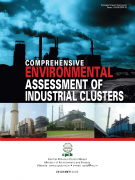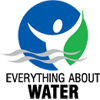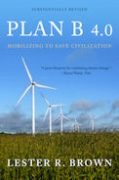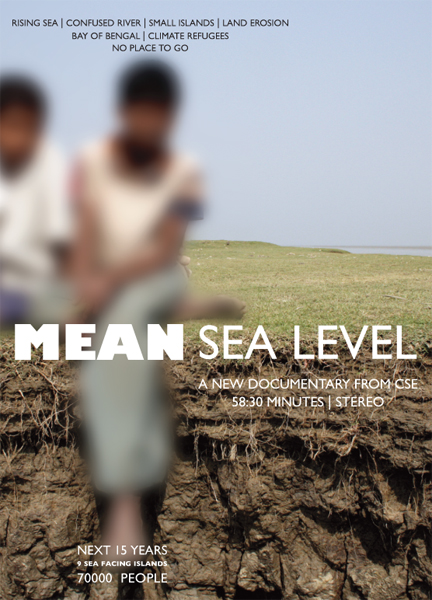Climate Change
Mountains of concrete: Dam building in the Himalayas - A report by International Rivers Network
Posted on 11 Aug, 2010 07:38 PMThis document by International Rivers Network provides a background for the recent plans initiated by India, Nepal, Pakistan and Bhutan to build several hundred dams on the Himalayan mountains, which store vast amounts of water and with their high slopes and fast moving rivers, present a huge potential for generating hydropower.
India, Nepal, Pakistan and Bhutan have been facing the increasing challenges of meeting their rising elecricity and energy needs and hydropower dams in the Himalayas are being proposed as solutions to meet a considerable part of these requirements.
The document examines the various arguments that have been put forward against the building of the dams as against the proposed advantages that the dams are claimed to have for these four countries, which share common geographical, topographical and eco-climatic features but have starkly different political and economic contexts.
48% industrial clusters in India are critically polluted: CPCB
Posted on 10 Aug, 2010 11:38 PM A Comprehensive Environmental Pollution Index (CEPI) is a very useful tool to capture the health dimensions of the environment including air, water and land. The CEPI is intended to act as an early warning tool and can help in categorising the industrial clusters/areas in terms of priority of planning needs for interventions.
A Comprehensive Environmental Pollution Index (CEPI) is a very useful tool to capture the health dimensions of the environment including air, water and land. The CEPI is intended to act as an early warning tool and can help in categorising the industrial clusters/areas in terms of priority of planning needs for interventions.
This report by the Central Pollution and Control Board (CPCB) presents the results of the application of the CEPI to selected industrial clusters or areas.
The main objective of the study was to identify polluted industrial clusters or areas in order to take concerted action and to centrally monitor them at the national level. This was in order to improve the current status of environmental components such as air and water quality data, ecological damage, and visual environmental conditions.
Economics of River Flows - A book by Dr.Bharat Jhunjhunwala
Posted on 09 Aug, 2010 06:06 PMThis book is essential reading for economists, power sector officials, power generation companies and environmentalists alike.
Dr.Bharat Jhunjhumwala holds a BSc degree in physics, chemistry and mathematics. He earned his PhD in food and Resource Economics from University of Florida at a tender age of 23 years. He joined Indian institute of management, Bangalore as Assistant professor immediately thereafter. He lived in a slum for two years to understand poverty and organized the Trade Union at IIM during the Emergency. He resigned from the IIM and became a consultant to donor agencies like Swiss Development Cooperation, Oxfam, Care, Overseas Development Institute and others mainly on rural development and watershed issues. He writes a column on economic issues for about 50 newspapers in india. He lives on the banks of River Alaknanda in uttarakhand on the feet of Lord Badri Vishal.
Invitation for case study submission in water magazine
Posted on 06 Aug, 2010 11:26 AM
Our publication is coming up with the annual "Case Study Special Issue” in Sept. 2010. Its a collector’s issue, where we are covering leading industries across the globe.
Climate change in India: Forgotten threats, forgotten opportunities - EPW paper
Posted on 02 Aug, 2010 01:12 AMThe document begins by commenting on the position taken by India in the global climate change discourse. India has consistently argued from the point of view of developing countries against restrictions on emissions that have been imposed on all countries globally, by stating that developing countries have started the industralisation processes recently and thus have contributed very little to the carbon emissions.
Thus, countries like India should not sacrifice their present development and growth for reducing global emissions. Any legitimate climate mitigation initiative should be just, equitable and secure developing countries' growth patterns.
The document argues that although India 's stand seems justifiable in the global discourse, the climate change issue is still a very sensitive one for India and India has the greatest to lose if it does not take proactive steps to deal with the issue of climate change in the future.
Salvaging and scapegoating: Slum evictions on Chennai’s waterways - EPW paper
Posted on 02 Aug, 2010 01:03 AMThe paper highlights the case of recent projects that have been planned on the river Cooum in Chennai.
Relevance of Meltwater in River Basin Hydrology
Posted on 23 Jul, 2010 10:53 PMA peer paper in Science Magazine focuses on the core of a riverine system, the upstream basin, and its impact on the entire river basin.
Providing a plan to save civilization - Books from the Earth Policy Institute
Posted on 11 Jul, 2010 05:24 AM Earth Policy Institute, is a non-profit environmental research organization dedicated to providing a vision of an eco-economy and a roadmap on how to get there. The Institute was founded in 2001 with the following goals:
Earth Policy Institute, is a non-profit environmental research organization dedicated to providing a vision of an eco-economy and a roadmap on how to get there. The Institute was founded in 2001 with the following goals:
- to provide a global plan (Plan B) for moving the world onto an environmentally and economically sustainable path
- to provide examples demonstrating how the plan would work, and
- to keep the media, policymakers, academics, environmentalists, and other decision-makers focused on the process of building a Plan B economy.
The basic research of the Institute has been published in the form of seven books:
Draft regulatory framework for wetlands conservation - Comments by ATREE
Posted on 09 Jul, 2010 11:49 PMThe Ministry of Environment and Forests released a draft of the regulatory framework for wetland conservation - Wetlands Conservation and Management Rules (2009) for feedback from all stakeholders. The draft framework was prepared by a multi-disciplinary expert group, and final round of comments were invited till June 21st 2010.
The Wetland Conservation Team of Ashoka Trust for Research in Ecology and the Environment (ATREE) did a detailed analysis of the draft regulation and submitted several pertinent concerns to the Ministry. The most significant observation is that the new framework (as do much of India's policies and laws) continues to propose unjustifiable State control and interventions over the country's wetlands and livelihoods of people dependent on them. The regulation does not make any constructive suggestions or recommendations for the conservation that the country's wetlands demand, and instead brings all wetlands into complete official control by installing Central, State and District-level wetland regulatory authorities, wherein the majority of the members will be senior government officials.
Screening of the film- Mean Sea Level. Directed by Pradip Saha for CSE, Bangalore
Posted on 07 Jul, 2010 10:45 AM
Organizer: Pradip Saha
Topic: Screening of the film- Mean Sea Level. Directed by Pradip Saha for CSE
Venue: Alliance Francaise De Bangalore
Description:
Around 7500 Kms from the heart of the Intergovernmental Panel on Climate Change [IPCC] in Geneva or the United Nations Framework Convention on Climate Change [UNFCCC] secretariat in Bonn, Ghoramara and Sagar islands are going through their own testimony of climate change related phenomena.





